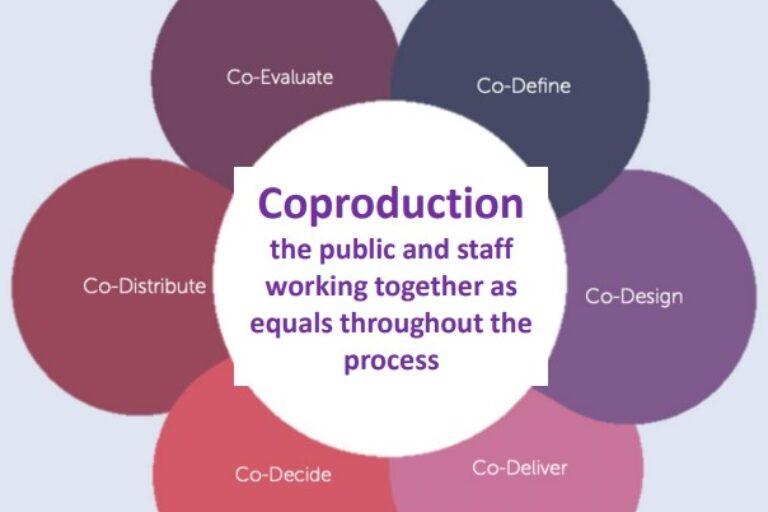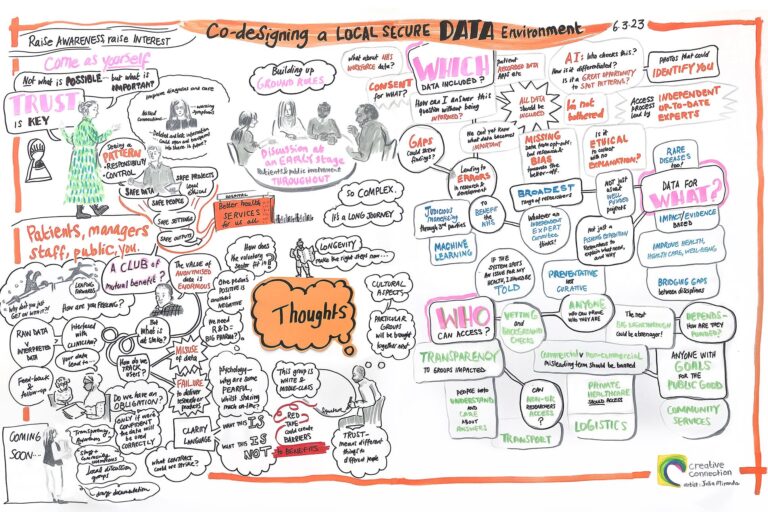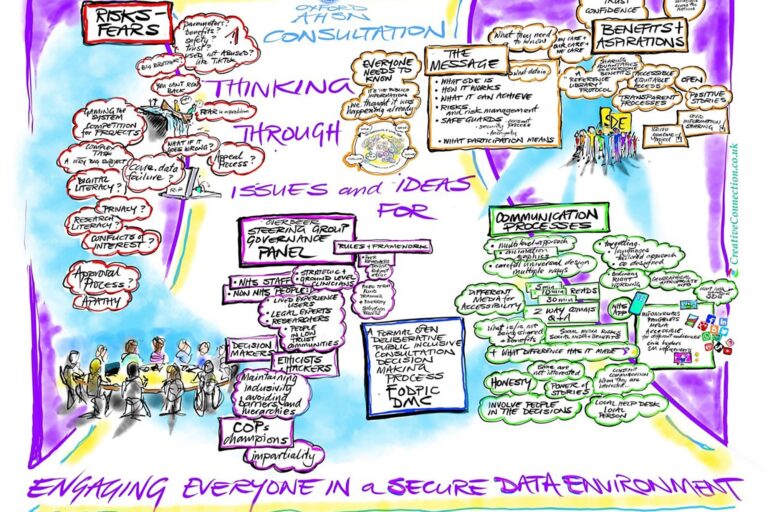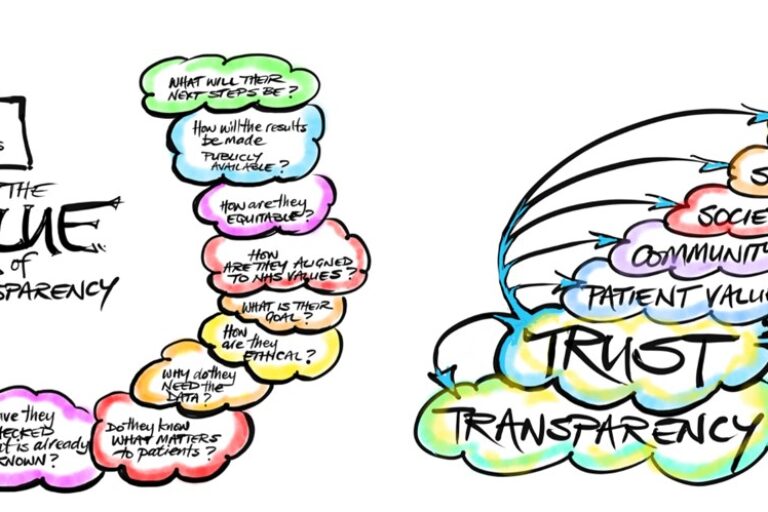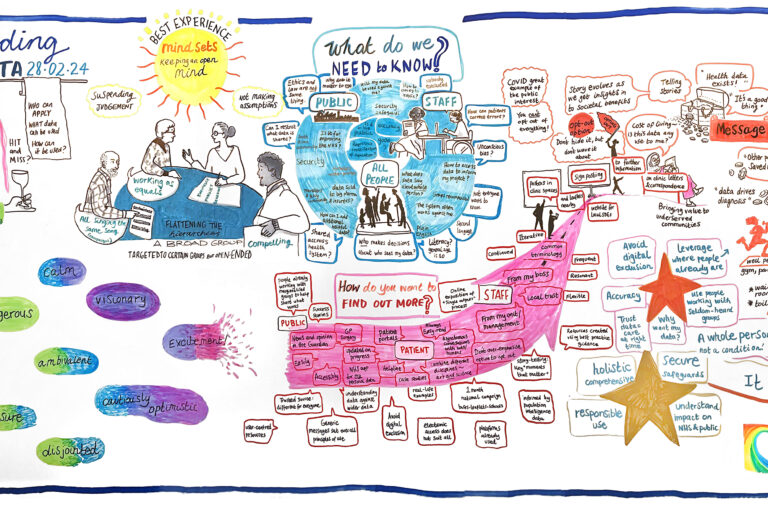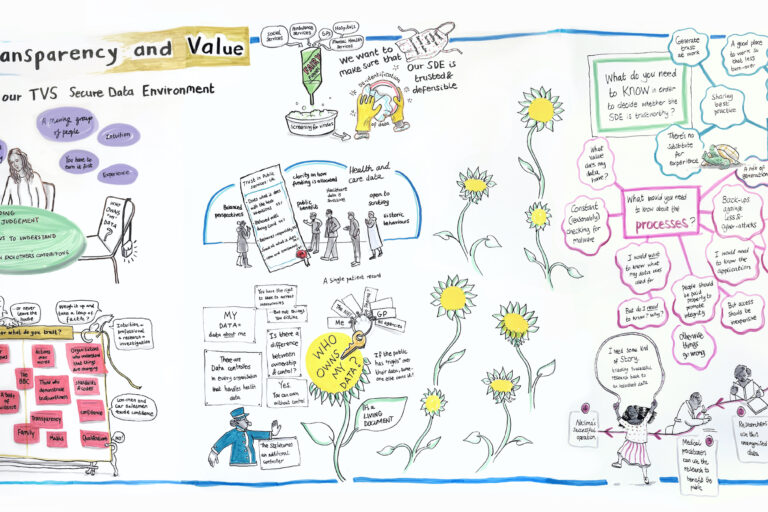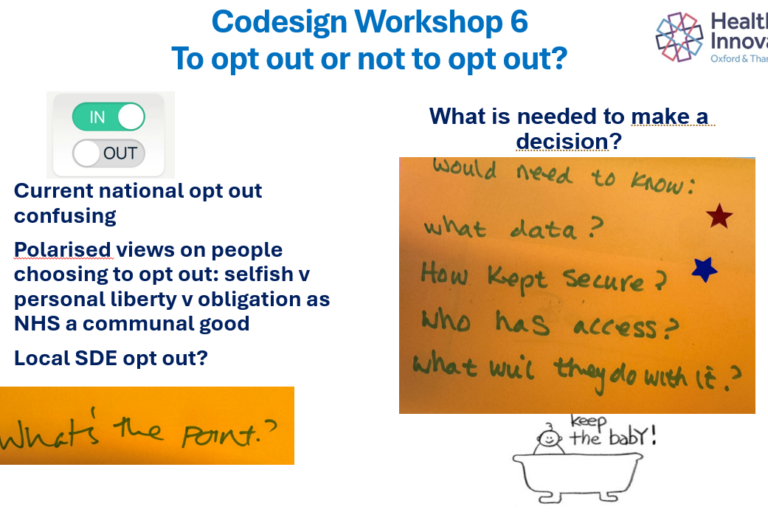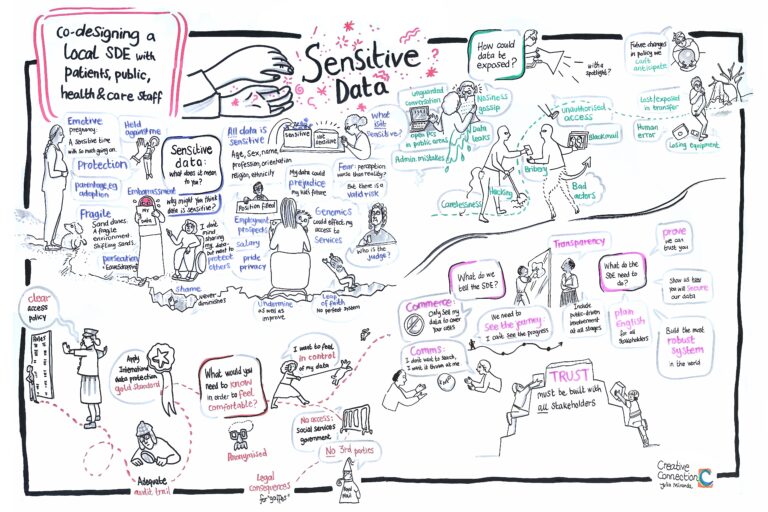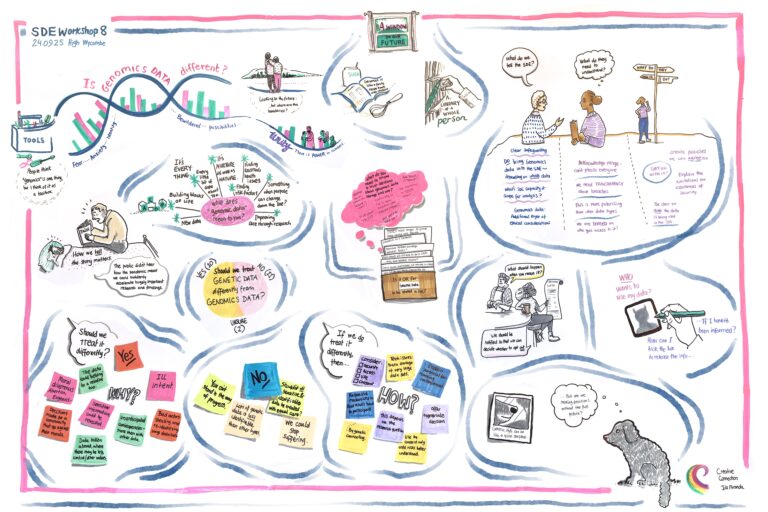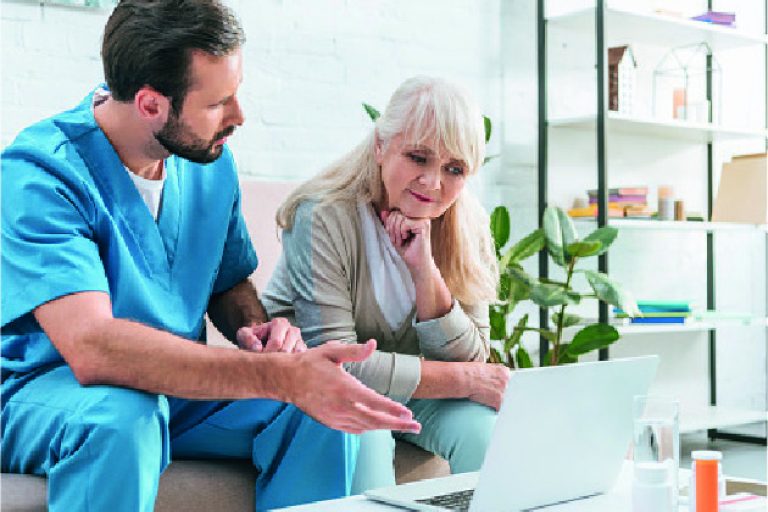Our Data Community of Practice
Collecting, understanding, and sharing patient data is important for the care of both individuals and groups of patients. Patients, the public and health and care staff need to be part of the discussions about how this happens, and given opportunities to share their thoughts and experiences. As part of the development of our SDE we have involved staff and the public from the beginning. We continue to do this through our Understanding Our Data Community of Practice.
Communities of Practice (CoP) are groups of people who share an interest in a particular topic or area of work and are committed to building trust and helping one another to achieve what they want to do. They create value through sharing thoughts and ideas and developing new knowledge, capabilities, and practice.
The Thames Valley and Surrey Understanding Our Data Community of Practice brings together patients, members of the public, and health and care staff to help co-design the processes, governance and frameworks that will underpin how the SDE is set-up, governed and managed.

